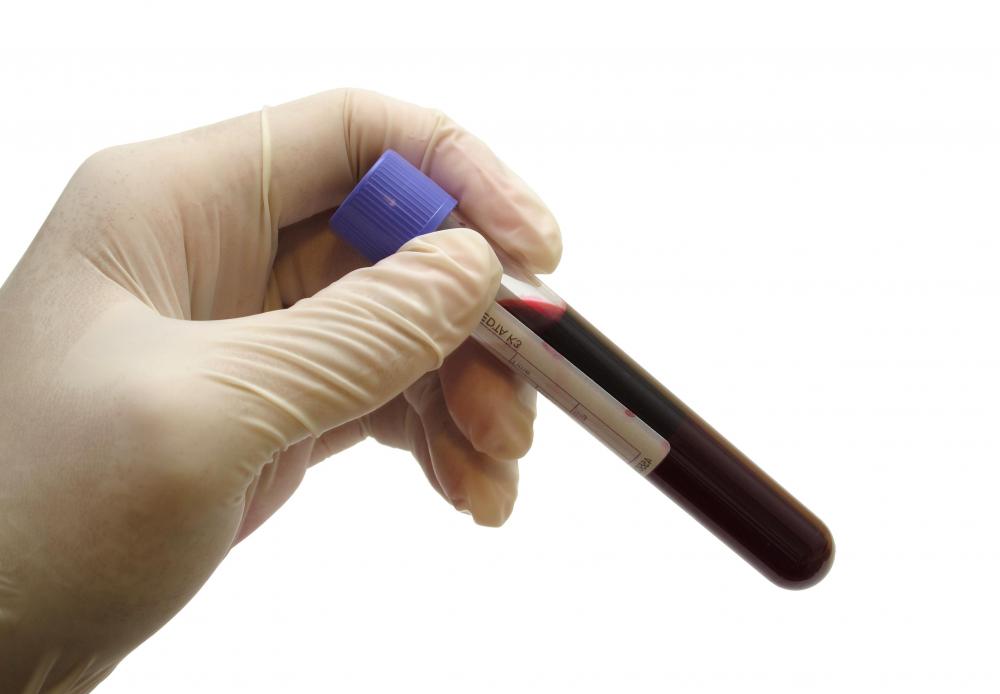At WiseGEEK, we're committed to delivering accurate, trustworthy information. Our expert-authored content is rigorously fact-checked and sourced from credible authorities. Discover how we uphold the highest standards in providing you with reliable knowledge.
What Factors Affect Vitamin K Absorption?
Vitamin K is one of the essential fat-soluble vitamins required for human health. Specifically, it is essential for proper blood clotting and skeletal bone maintenance. Sources of vitamin K include green, leafy vegetables in the diet for one form of the vitamin and synthesis by gastrointestinal tract bacteria for another. The necessary amount of vitamin K ingestion by diet or supplements usually is small because the body recycles the available compound in an almost endless loop. Despite this recycling, any changes to the body's ingestion or storage of this nutrient — or of the intestinal bacteria's synthesis of the compound — can affect vitamin K absorption.
For the dietary source, vitamin K absorption takes place in the small intestine. Diseases of the small intestine or surgical removal of part of this organ can decrease nutrient and vitamin absorption in a condition known as malabsorption syndrome. Digestion of all fat-soluble vitamins requires a necessary amount of pancreatic and biliary enzymes as well as dietary fat to facilitate absorption. Thus, liver disease, gallbladder disorders or pancreatic disease can all decrease absorption. A diet that is very low in fat can also decrease the body's ability to absorb vitamin K.

The liver is intimately involved in vitamin K absorption, storage and recycling. Not only is it the primary repository of stored vitamin K, it produces digestive enzymes — bile salts — that are necessary to metabolize dietary food into vitamin K. Any type of liver disease can decrease absorption of Vitamin K. This can happen by decreasing the liver's production of bile salts necessary for digestion or by decreasing the storage capacity of the organ because of scarring or inflammation. The liver's involvement in blood clotting outside of the vitamin K cycle means that disease can cause replacement vitamin K to be required as clotting factors are decreased or eliminated.

For the intestinal bacterial synthesis source of vitamin K, long-term use of broad-spectrum antibiotics can decrease absorption by eliminating the helpful bacteria. This unfortunate side effect is sometimes the result of treatment for cystic acne, recalcitrant sinus infections and other antibiotic therapies that involve weeks or months of medication. Partial surgical removal of the small or large intestine can also result in this absorptive loss via the loss of bacterial production.

Lastly, drug and nutritional supplements also can interact to decrease absorption of Vitamin K. Vitamin A, in particular, interferes with vitamin K absorption, and supplemental vitamin E can require greater amounts of vitamin K by using up vitamin-K dependent clotting factors. Anticoagulant therapy drugs such as warfarin interrupt the body's natural recycling loop for vitamin K.

There are different opinions on whether patients on anticoagulant therapy may use vitamin K safely. Traditionally, patients using drugs like warfarin have been advised to avoid vitamin K supplements because of the risk of blood clots. Some scientist believe that a moderate intake of vitamin K may not be harmful. Patients using anticoagulant therapy and who are concerned about their vitamin K levels must speak with their doctor for the best and most accurate advice for their situation.
AS FEATURED ON:
AS FEATURED ON:














Discuss this Article
Post your comments